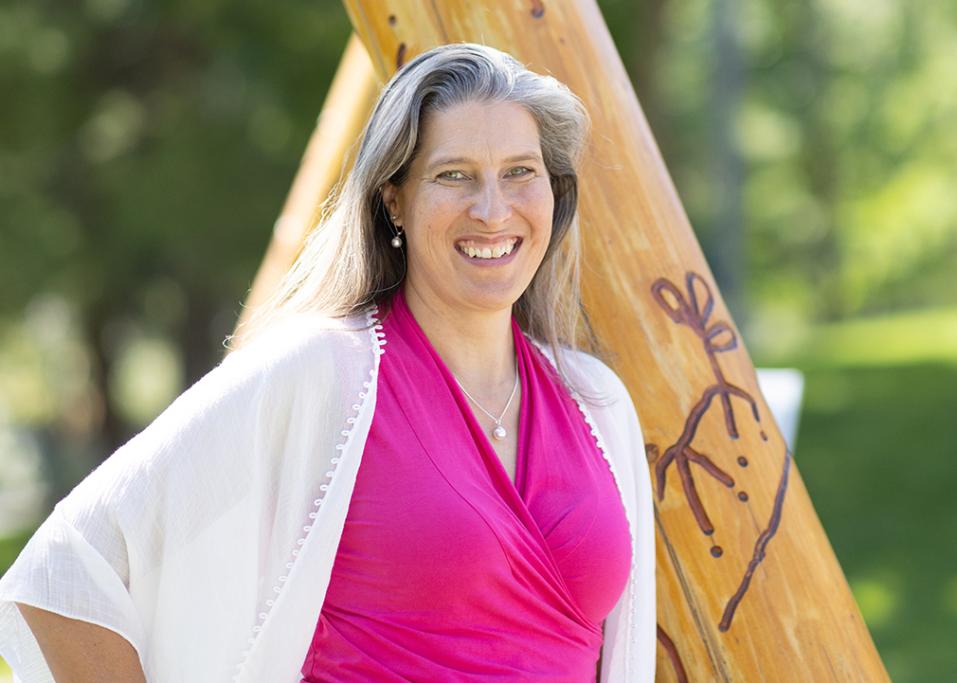
A common image that crosses the mind while thinking about cell biology is simply watching and studying cells under a microscope. But Dr. Robin Young, Assistant Professor of Teaching in the Department of Biology of the Irving K. Barber Faculty of Science at UBC Okanagan, has redefined this conventional perception of the discipline through a thoughtful convergence of three seemingly disparate areas: research, ethics and creativity.
Traditionally, cell biology courses have laid great emphasis on grades and exams. But Dr. Young designs projects to help her students make strong connections between biology and justice.
“I want to ensure that my students’ projects are topical, so I focus on issues that are relevant in the current news,” she says. “The Black Lives Matters movement that came to light in 2020 was a perfect opportunity to remind my students of the types of disparities that exist in scientific research. It gave us a chance to talk about why certain topics are traditionally covered while others have been overlooked or left out of our textbooks. We talked about how scientific research has perpetuated racism by not embracing diversity to the extent that it should, and is therefore not a level-playing field for under-represented minorities. As a teacher, I want my students to understand the underlying injustices that exist in the subject, by challenging stereotypes and looking at it through a lens of ethics, diversity and inclusion.”
Dr. Young chose to study cell biology because of her love for microscopes, but the turning point in her journey was when she did her PhD at UBC Vancouver. Her PhD supervisor, Dr. Lacey Samuels in the Department of Botany, encouraged her to explore and strengthen her expertise in both teaching and research – a unique and unconventional approach that Dr. Young strongly believes played an instrumental role in her career.
Please visit UBC Today to read the full story.
Through Strategy 14: Interdisciplinary Education, UBC is developing academic structures that foster and support opportunities for students from different perspectives and disciplines to work together on complex or emergent problems.